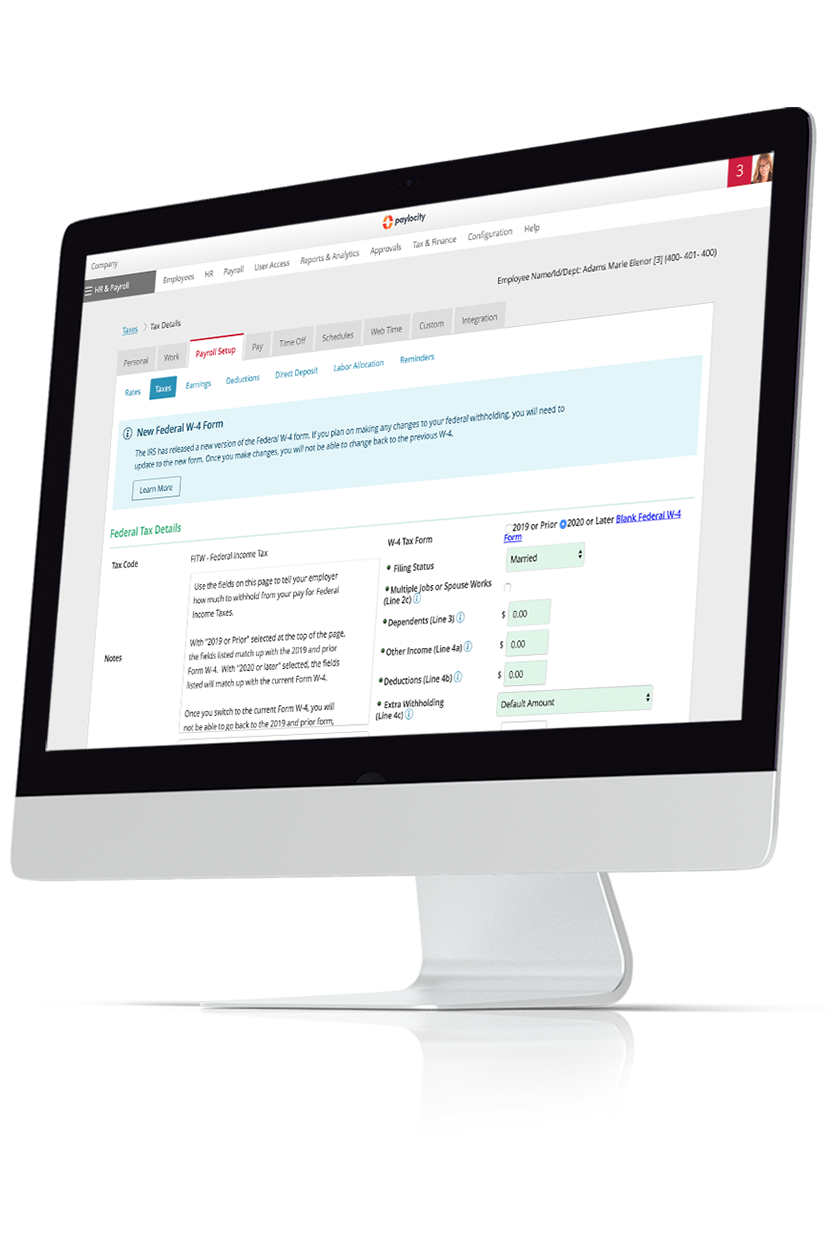Pennsylvania Payroll Tax Facts
January 08, 2025
Having to comply with unique state taxes and wage laws can make processing payroll doubly daunting. Here’s everything you need to know about these rates and laws for the state of Pennsylvania.

While the state of Pennsylvania uses the same minimum wage rate required by the federal government, the city of Philadelphia also has a local Paid Sick Leave program guaranteeing time off for local employees who work for a local manager.
When it comes to processing payroll, Pennsylvania-based organizations must handle the following taxes in addition to those required by the federal government:
- Personal Income (a.k.a. State Income Tax)
- State Unemployment Insurance (SUI)
- Earned Income Tax (EIT)
- Local Services Tax (LST)
- Local Taxes
The below information was last updated January 8, 2025. It is not intended as legal or tax advice.
Pennsylvania Payroll Tax Rates
Pennsylvania State Income Tax (SIT)
Pennsylvania has a flat income tax rate of 3.07%, meaning all residents pay the same amount regardless of their income levels.
|
Additional Pennsylvania SIT Details |
|
|
Supplemental Withholding Computation |
N/A |
|
Valid Filing Statuses |
|
|
Exemptions |
N/A |
|
Form W-4 |
N/A (allowances aren't permitted as employers withhold a flat rate on all gross wages) |
|
Reconciliation Frequency |
Annual |
Pennsylvania State Unemployment Insurance (SUI)
SUI provides unemployment benefits to eligible workers who are unemployed through no fault of their own (as determined by state law) and meet the state’s eligibility requirements.
|
Pennsylvania SUI Tax Details |
|
|
Taxable Wage Base |
$10,000 |
|
Employee Subject to Tax |
Yes (0.07% of their total gross wages) |
|
Rates for Experienced Employers |
1.419% - 10.3734% |
|
Rates for New Employers |
3.82% |
|
Effective Period |
Calendar Year |
|
Voluntary Contributions Allowed |
Yes; must be made within 120 days after the start of the year and 30 days after the mailing of employer rates |
Pennsylvania State Disability Insurance (SDI)
SDI benefits are funded by employees through mandatory payroll deductions from each paycheck. Pennsylvania, however, doesn't require employers to collect an SDI tax.
Pennsylvania Paid Sick Leave (PSL) Tax
The state of Pennsylvania doesn't require employers to collect PSL taxes, nor does the state have a program providing such leave to employees. The following areas, however, do have local programs providing such leave to eligible employees:
Pennsylvania Paid Family and Medical Leave (PFML) Tax
The state of Pennsylvania doesn't require employers to collect PFML taxes, nor does the state have a program providing such leave to employees.
Pennsylvania Local Earned Income Tax (EIT)
Employers in Pennsylvania must withhold and remit a local EIT to the state on each employee’s behalf. The rates for this tax vary based on the employer’s location and the employee’s residence, which are each identified by a Political Subdivision (PSD) code. The higher of the two rates (the resident PSD’s rate or the work PSD’s rate) is what’s withheld from the employee’s wages. The work PSD also determines which state-based tax collector receives the withheld funds and is always used to report wages. Meanwhile, the resident PSD is used on quarterly tax returns so the state-based collector knows which local township or municipality should receive the funds.
Pennsylvania Local Services Taxes (LST)
Some local townships or municipalities in Pennsylvania also require employers to withhold and remit an LST to the state on some employees' behalf. Like local EIT rates, LST rates vary based on where the employee works but are solely based on that work location. Not all local townships or municipalities require an LST, but those that do typically will require one of three annual amounts:
- If the LST’s annual amount is $10.00, the tax will be withheld from the employee’s first paycheck of the year.
- If the LST’s annual amount is $52.00, a $1.00 weekly tax will be applied throughout the year and adjusted based on the employee’s pay frequency.
- If the LST’s annual amount is $156.00, a $3.00 weekly tax will be applied throughout the year and adjusted based on the employee’s pay frequency.
Low-income employees who make less than $12,000 annually are exempt from LSTs.
Pennsylvania Local Taxes
The city of Philadelphia has its own income tax (the Philadelphia Wage Tax) in lieu of a state EIT for those who work and live within its city limits. The rates for this tax are:
- 3.75% for city residents
- 3.44% for nonresident employees
Note, the city also requires employers to report a company’s entity type classification information on its quarterly returns:
- TST - Trust
- IND - Individual/Sole Proprietor
- CRP - Corporation
- PART - Partnership
- EST - Estate
- GOVT - Government
- NONP - Nonprofit
- DIS - Disregarded Entity
Miscellaneous Pennsylvania Tax Information
Pennsylvania Reciprocal Agreement(s)
Reciprocal agreements are when workers who live and work in different states are only required to pay taxes to the state where they live. Pennsylvania currently has reciprocal agreements with the following states:
- Indiana
- Maryland
- New Jersey
- Ohio
- Virginia
- West Virginia
Residents from these states who work in Pennsylvania will need to submit a completed REV-419 form to allow their employer to withhold taxes for their state of residence.
Pennsylvania Minimum Wage Rates
|
Wage Type |
Pennsylvania Rates |
Federal Rates |
|
Minimum Wage |
$7.25 |
$7.25 |
|
Tipped Minimum Wage |
$2.83 |
$2.13 |
|
Actual Tip Credit |
$4.42 |
$5.12 |
Paying Payroll Taxes in Pennsylvania
Pennsylvania Employer Registration
The agencies below can help with your state-based employer registration, including best practices, account numbers, and unemployment information. Contact the Department of Revenue for withholding tax topics and the Department of Labor & Industry for unemployment tax topics.
|
Registration Details |
Department of Revenue |
Department of Labor & Industry |
|
Phone |
(717) 787-1064 | (866) 403-6163 |
|
Online Registration |
myPATH Tax Hub | |
|
Registration Instructions |
Online registration is available, and your account number will be issued during the registration process. | |
|
Employer Self-Service Login |
myPATH Tax Hub | UCMS Login Page |
As part of their registration, Pennsylvania-based employers are also required to make any deposits using their Employer Assigned Filing Frequency. The deposit frequency is based on the amount of withholding by the employer, while the filing type is decided by the Department of Revenue based on a quarterly average of tax withheld. The agency will provide employers an annual notice of their frequency or changes to their frequency.
- Semi-Weekly: Employers that can reasonably anticipate their employer withholdings will be $20,000 or more in a calendar year
- Semi-Monthly: Employers with a quarterly average amount of $1,000.00 or greater
- Monthly: Employers with a quarterly average amount of less than $1,000.00, but greater than or equal to $300.00
- Quarterly: Employers with a quarterly average amount of less than $300.00
Note, all active employer withholding tax accounts must file quarterly reconciliation returns of income tax withheld.
Additional Pennsylvania Payroll Tax Resources
- Department of Revenue Business Resources Page
- Department of Revenue Employer Withholding Forms Library
- Department of Labor and Industry Employer Resources Page
- Pennsylvania One-Stop Shop for Businesses
This information is provided as a courtesy and may be updated at any time. It is not intended as legal or tax guidance. If you have questions or concerns, we encourage you to seek the advice of a qualified CPA, tax attorney, or advisor.

Get Taxes Done Right, Without the Stress
We know there's a lot that goes into preparing and filing payroll tax forms. Save time and get support from our expert team. As a Registered Reporting Agent with the IRS, we can help prepare and file all the necessary forms you need to remain compliant - even in the face of changing legislation. Learn more here.